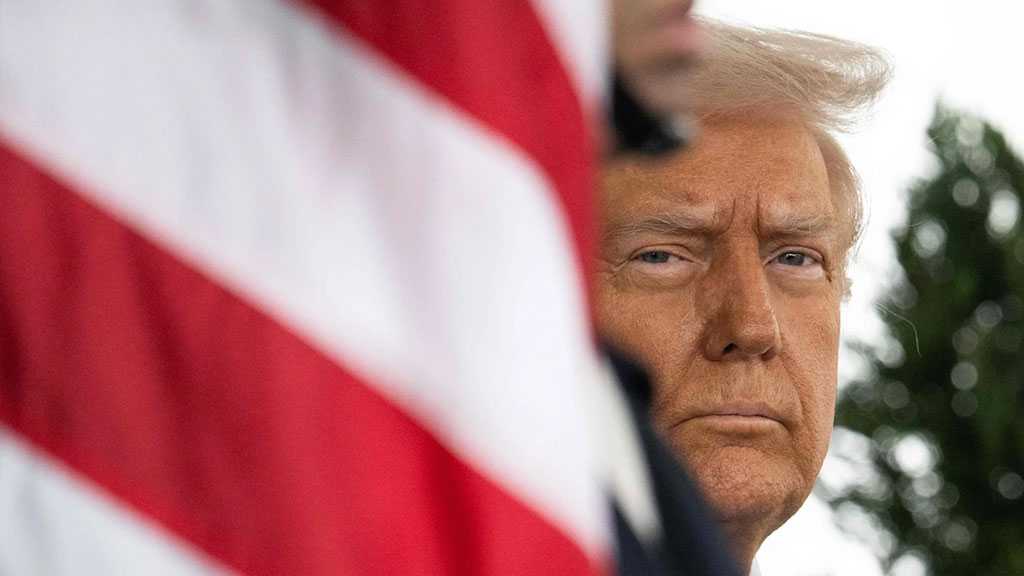America Wants Lebanon to Join the “Abraham Accords”

Translated by Al-Ahed News, Al-Akhbar Newspaper
It is crucial to examine how Nawaf Salam was appointed as Prime Minister, not merely to uncover a political scoop, but to understand the schemes being orchestrated against Lebanon. If the Americans managed to impose General Joseph Aoun as President on the parliamentary majority, compelling Hezbollah and Amal's MPs to comply, then selecting Salam as Prime Minister did not require the same level of pressure. It was sufficient to exploit internal contradictions, paving the way for a Prime Minister during the President's first term who would align with the broader political context.
This context is not an inevitable destiny, despite the beliefs of the so-called “new Trumpists” in Lebanon, who are not few. These individuals and interest groups view Donald Trump as the "destiny of the world," convinced that nothing can prevent him from achieving his objectives. Consequently, they advocate for adapting to emerging realities, promoting coexistence with changing circumstances, urging an end to what they call “teenage resistance,” and promising prosperity under the leadership of the “dealmaker” and “miracle worker.” Their underlying message is simple: We want to live!
A Pre-Determined Roadmap
Since January 9, Lebanon has witnessed a series of developments revealing the roadmap designed by “Uncle Donald.” According to this plan, Lebanon has no right to question “Israel” about the timeline of its withdrawal from the south or to condemn any of its current or future actions, as “Israel” is seen as merely fulfilling its obligations. Moreover, Lebanon is prohibited from undertaking any action that might disturb the occupying state. This restriction extends beyond issues such as the landing of Iranian planes at Beirut Airport; it could even escalate to demands for “Israel” to vet the list of attendees at the funerals of Sayyed Hassan Nasrallah or Sayyed Hashem Safieddine. Meanwhile, “Israel” has reportedly informed the Americans of its intention to block funds aimed at Lebanon's reconstruction.
The focus is currently on halting Iranian funds, with preparations underway to impose conditions on any financial assistance from other countries, whether Arab or Western. “Israel” is particularly keen on ensuring that reconstruction efforts do not facilitate the return of people to their homes, especially in border villages. In tandem, the enemy is allegedly working on plans to provoke residents along the border, hoping to create fear and discourage them from staying in their homes. This would be accompanied by efforts to keep them away from the villages during the day—all under the watchful eye of international forces, leaving the Lebanese army's role uncertain.
American Oversight and Disarmament Campaign
The United States, acting as the “direct guardian” of Lebanon, aims to monitor all of its actions before granting the nation a status of maturity. Washington and “Israel” are reportedly aligned on the necessity of disarming the resistance, not just south of the Litani River but across all of Lebanon. The US plans to grant “Israel” the right to launch military and security strikes against any individual or area in Lebanon deemed a threat. This would precede a coordinated campaign led by America and its Lebanese allies under the banner of “disarmament for survival.”
This campaign is still in its early stages, but its narrative is taking shape, with proponents arguing that “arms were not the solution to confronting ‘Israel.’” Such rhetoric conveniently ignores the role of the resistance in preventing the occupation of southern villages during the war with Lebanon. It is likely that this narrative will soon escalate into attacks against the resistance, including defamation of its martyrs and supporters.
Pushing Lebanon Toward Normalization
The ultimate objective of this American-‘Israeli’ strategy, with partial support from Saudi Arabia, is to push Lebanon toward joining the “Abraham Accords.” Achieving this requires controlling all decision-making positions, including the presidency, ministerial portfolios, senior civil servants, security officials, and even the judiciary. It also involves gaining direct access to the central bank’s data, customs, and tax authorities, as well as preemptive monitoring of all land, sea, and air entry points into Lebanon. This could go as far as appointing individuals handpicked by foreign powers for key positions.
This agenda extends to redefining Lebanese-Syrian relations, especially since Washington has made progress in reconfiguring its ties with Syria's new leadership. The U.S. no longer views the Syrian ruler's ideological leanings as a concern, given his shift from radicalism to pragmatism. In this context, issues like the “Israeli” occupation of Palestine are relegated to symbolic gestures, while the Golan Heights and other occupied territories are expected to remain under occupation indefinitely. Syrian refugees, meanwhile, are only welcome back if they bring the financial means to sustain themselves.
Repercussions for Lebanon and Beyond
The transformation envisioned for Syria involves a political landscape shaped by sectarian and ethnic divisions, similar to the post-occupation governance models seen in Iraq. This restructuring would necessitate Lebanon aligning itself with a new Syrian regime that enjoys international legitimacy. However, Lebanon would be expected to abandon demands for border demarcation or the return of displaced persons.
The Root of Lebanon's Crisis
At the heart of this American-‘Israeli’ strategy is the demonization of Hezbollah. As Zionist envoy Morgan Ortagus declared from Baabda Palace, Lebanon must operate on the premise that Hezbollah represents evil and that “Israel” has defeated it. Consequently, Lebanon is expected to bear the cost of this “victory” through normalization with “Israel,” which in American terms translates to joining the “Abraham Accords.”
Some may dismiss the notion of Lebanon normalizing relations with “Israel” as mere speculation. However, the stark reality is that the “Trump Doctrine” leaves little room for ambiguity. The US has shown time and again—through invasion, occupation, and political coercion—that it is willing to devastate nations and fragment societies to achieve its geopolitical objectives. Lebanon is merely the latest target.
A Grim Outlook
To understand the gravity of the situation, one must revisit the events that unfolded at the beginning of the year. Only then will the full extent of what is transpiring in southern Lebanon, at Beirut Airport, and within official corridors become clear. Lebanon stands on the brink of internal conflict and potential civil violence, unless the country’s new leaders recognize that capitulating to American demands equates to national suicide. In this regard, the fate of Jordan’s King serves as a cautionary tale for those enamored with American power.
Comments

America Wants Lebanon to Join the “Abraham Accords”
one month ago
US Envoy Returns to Preserve “Israeli” Occupation
one month ago

